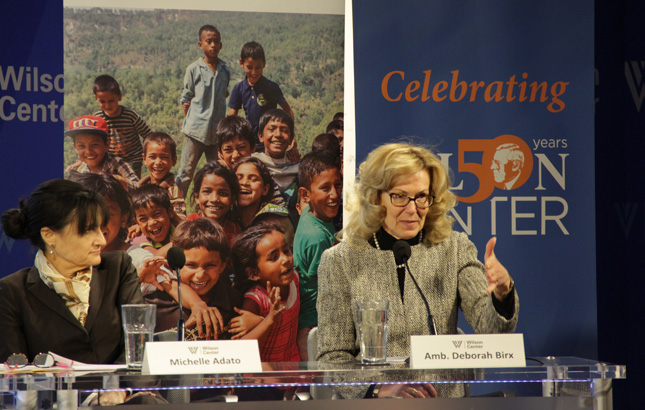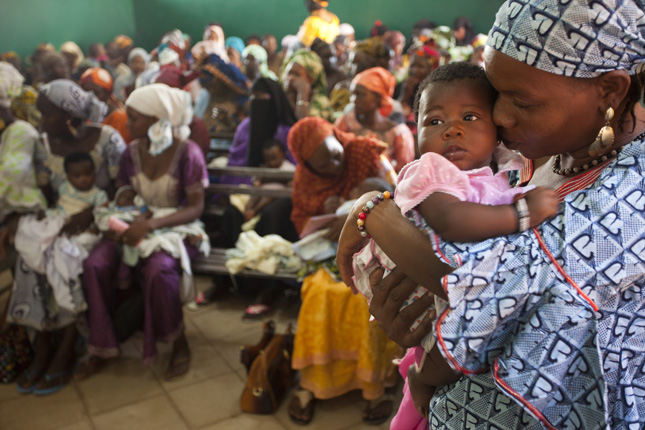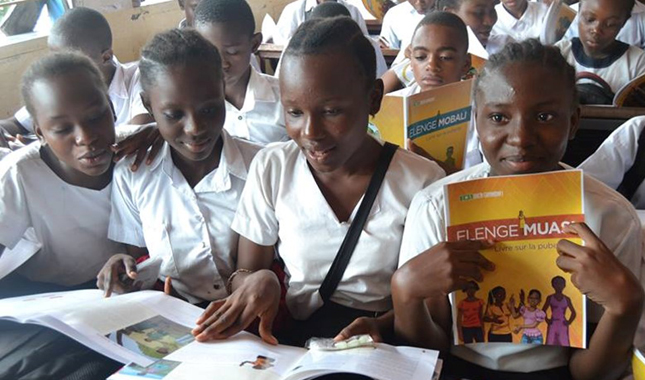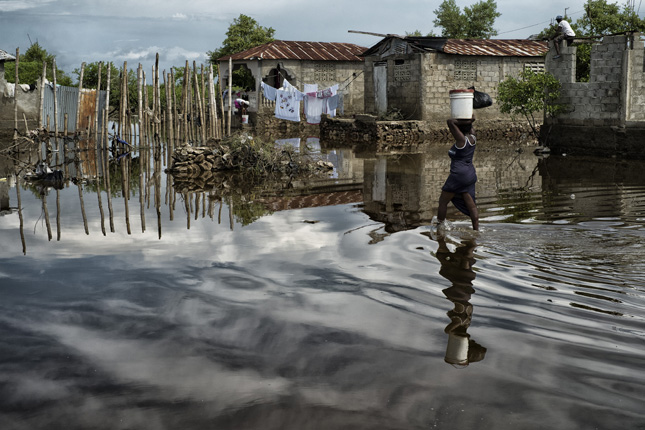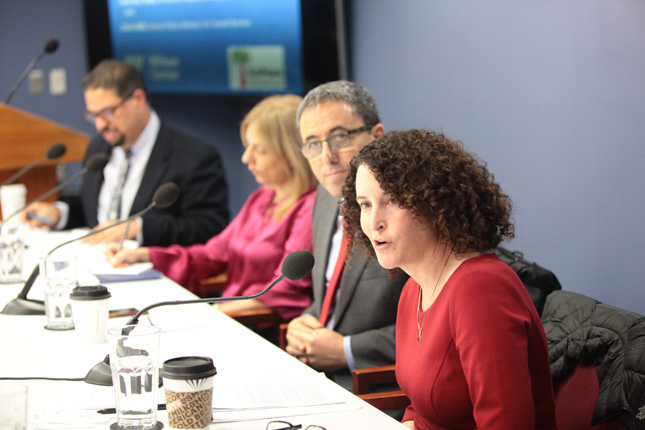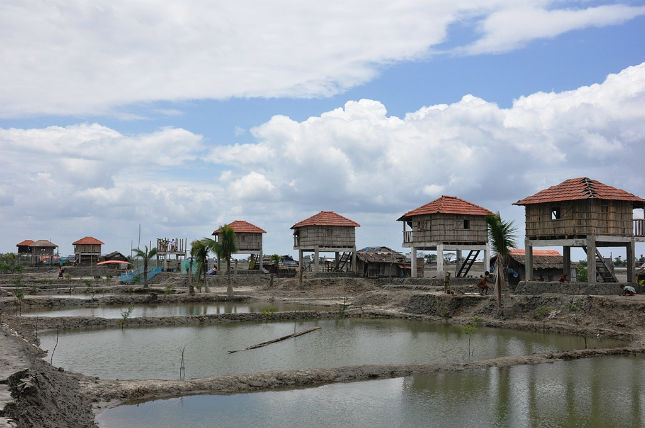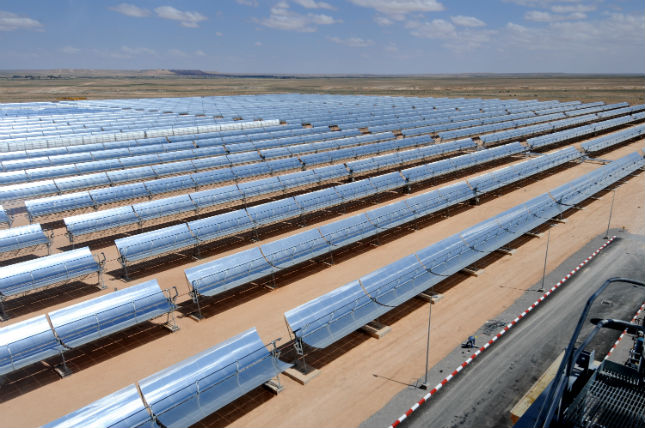-
Women and War: Securing a More Peaceful Future
›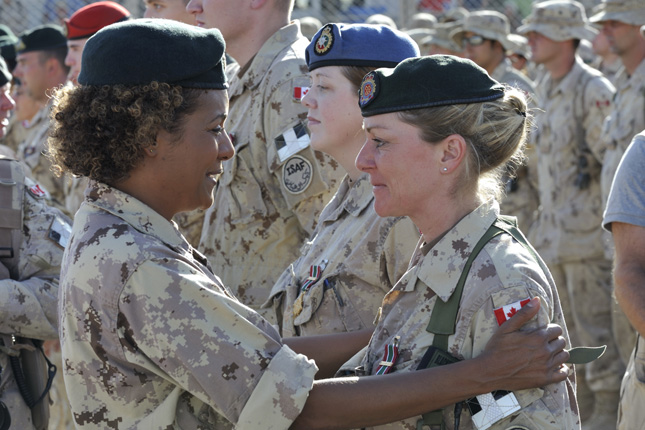
“Conflicts are 35 percent more likely to be resolved and remain peaceful for 15 years if women are involved,” said Carla Koppell, vice president of the Center for Applied Conflict Transformation at the United States Institute of Peace, at a recent Wilson Center event on the role of women in war, security, and peace.
-
U.S. Global AIDS Coordinator: DREAMS Program Reduced HIV/AIDS Among Adolescent Girls in Sub-Saharan Africa
›
“There is no healthcare delivery system for non-pregnant 15- to 24-year olds,” said the U.S. Global AIDS Coordinator, Ambassador Deborah Birx, at a recent Wilson Center event on efforts to reduce the prevalence of HIV/AIDS among adolescent girls in sub-Saharan Africa. In 2014, the U.S. President’s Emergency Plan for AIDS Relief (PEPFAR) established the DREAMS program, which aims to create “a health care system where young people interact in a proactive and positive way,” said Birx.
-
The 30th Anniversary of the Safe Motherhood Initiative
›
Since 1987, the number of women dying during pregnancy and delivery has dropped by 43 percent, saving hundreds of thousands of women’s lives—and changing the lives of their families—around the world. “Our achievement in making maternal mortality an injustice that needs to be recognized by health ministers, by heads of state, by heads of agencies, has been, I think, the single greatest achievement of the Safe Motherhood Initiative” since it began 30 years ago, said Ann Starrs, President and CEO of Guttmacher Institute, at a Wilson Center event marking the anniversary of this important effort.
-
City Kids: The Sexual, Reproductive, and Maternal Health of Urban Adolescents
›
“All or most of the children living in these communities are by nature vulnerable,” said Melanie Yahner of Save the Children at a recent Wilson Center event on the sexual, reproductive, and maternal health of urban adolescents. Given that half of the global population living in urban areas today is under the age of 25, addressing the health needs of adolescents living in cities has become critical. “Who is shaping their norms and practices?” said Yahner. “How do we develop and adapt interventions that are meaningful for their needs?”
-
The Big Picture: Measuring Efforts to Build Resilience
›
“Resilience isn’t an outcome,” said USAID Resilience Coordinator Greg Collins at a recent Wilson Center event on measuring resilience; it is “the ability to manage adversity and change without compromising future well-being.” The wide array of individual factors that contribute to building resilience—ranging from livestock insurance and microsavings, to risk tolerance and women’s decision-making—can be challenging to measure individually, let alone in concert. But this assessment is essential for designing and implementing successful development projects: “We have to be able to answer the question: Is this building resilience, yes or no?” said Cornell University’s Chris Barrett.
-
Ripple Effects: Sharing Water and Building Peace in the Jordan River Valley
›
In the war-torn Jordan River Valley, we can meet the “strategic objective of reducing conflict by promoting cooperation on shared waters,” said former defense official Sherri Goodman at a recent Wilson Center event on environmental peacebuilding. Even in the midst of political disputes, Jordanians, Israelis, and Palestinians must work together to manage the scarce supplies of clean water to protect their health, their economies, and their security.
-
“Let’s Start From Here”: Local Solutions for Loss and Damage and Livelihood Resilience
›
Without warning, water rushed into a woman’s home on a raised platform above the floodplain of Bangladesh’s Teesta River. She was just a hand’s distance from her infant son, but she couldn’t stop him from falling into the floodwaters. “She can’t recover back from the trauma,” said the University of Dundee’s Nandan Mukerjee of the mother who lost her child to the currents of climate change.
-
Building Stability in the Middle East: Defining a Transatlantic Agenda for Climate Resilience
›
Climate change can undermine stability in the Middle East and North Africa, where both the United States and Europe have critical foreign policy and security interests. The Middle East and North Africa (MENA) region “is impacted by climate and resource scarcity risks now, in the medium, and in the long term,” said Nick Mabey, director and chief executive of the environmental think tank E3G, during a recent Wilson Center event on building climate resilience in MENA countries. “It’s a region that is highly vulnerable to climate change,” said Mabey, and “also incredibly vulnerable to global systems.”
Showing posts from category video.


